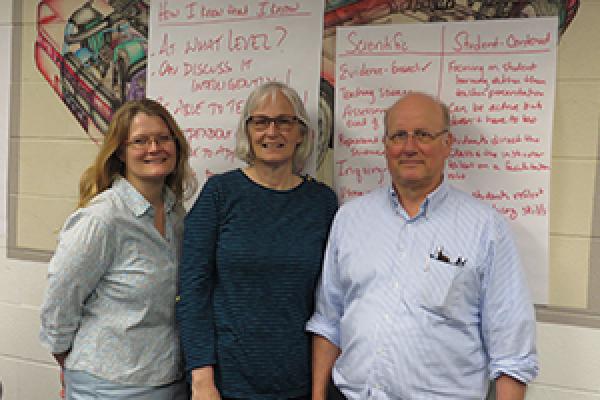Teaching Ohio State’s Largest Major Gets a Makeover: CLSE Holds Ohio State's First National Academies Summer Institute June 8-12

The first National Academies Summer Institute at Ohio State (NASI@OSU) held this week, June 8-12 at the Center for Life Sciences Education (CLSE), is a targeted initiative to improve how biology is taught to both majors and non-majors. It is being led by Michelle Withers (West Virginia University) and Randy Phillis (University of Massachusetts - Amherst) and is patterned on the National Academies Summer Institutes (NASI), founded at the University of Wisconsin – Madison.
CLSE provides basic biology education to non-majors as well as majors. With 2046 students, biology is the largest undergraduate major at Ohio State. It also is one of the most popular general education courses; approximately 7500 students enroll in introductory biology courses, each year.
“The goal,” Breitenberger said, “is to facilitate institutional reform of STEM education, focusing initially on biology courses.”
Over the course of the week-long institute, faculty and staff participants will develop and peer-review teaching materials and learn how to implement scientific teaching in the classroom, taking a research-based approach to biology teaching.
“Our plans are to work with Michelle and Randy to provide a second NASI@OSU next summer, and then to continue to offer NASI@OSU every year, extending the reach of this summer institute to include faculty and instructional staff from a wide range of STEM disciplines on the main and regional campuses, also including faculty from nearby institutions,” Breitenberger said.
Participants will show off their work in Teaching Presentations on Thursday, June 11, 9 a.m. –noon in 206 Hitchcock.
These group presentations of teachable tidbits will be peer-reviewed by organizers and participants, allowing groups to practice assessing the effectiveness and student-centeredness of learning activities and to incorporate peer feedback into their teaching modules before using them in their own classes.
Breitenberger is associate professor, chemistry and biochemistry. Recently, she was selected a Partnership for Undergraduate Life Sciences Education (PULSE) Fellow. PULSE Fellows are a select national group working to promote biology education reform on all levels, from individual faculty to systemic initiatives. PULSE was formed by the National Science Foundation, the National Institutes of Health and the Howard Hughes Medical Institute as a community of scientists working together to implement recommendations of the American Association for the Advancement of Science report, Vision and Change in Undergraduate Biology Education: A Call to Action.
—Sandi Rutkowski
